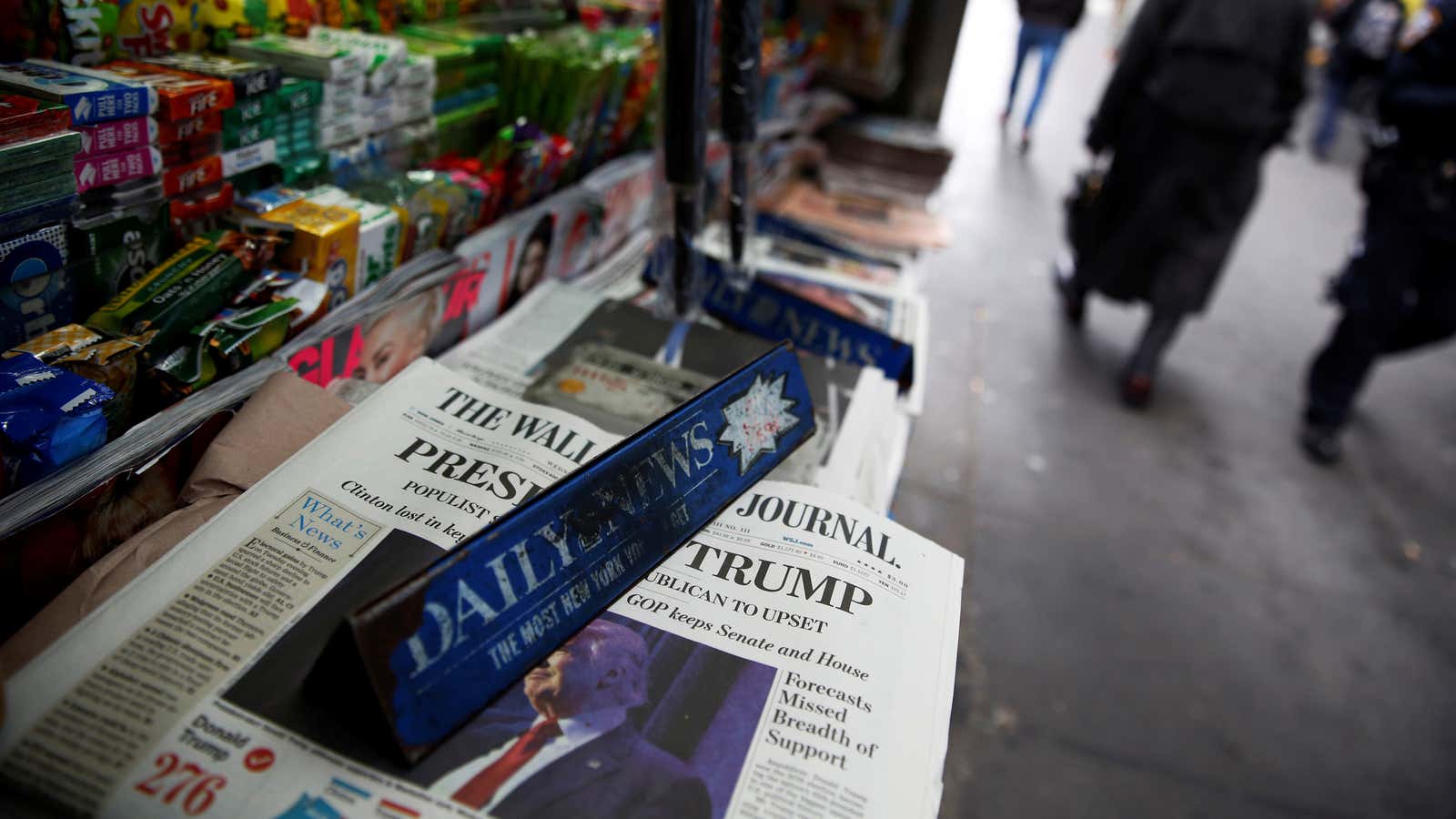That the media didn’t foresee Donald Trump’s win is, ironically, part of the reason they are being blamed with such force for it.
Whether the leftism of mainstream publications contributed to voters’ polarization in the election or not, the fact remains that Hillary Clinton won the lion’s share of major newspaper and magazine endorsements leading up to the election. Yet now, those same big publications that scorned Trump—sometimes openly, in their reporting as well as on their opinion pages—have to reckon for the next four years with coverage of a presidency they were never prepared to accept.
At hand is the question of whether each publication’s tone regarding Trump will, or should, change; the vast majority are grudgingly saying yes, with the alternative being to spend the next half a decade routinely disparaging the head of the country. Offering the most extreme example of this turnaround is the Huffington Post, which at first snidely shoved coverage of Trump’s campaign into its entertainment section when he first announced he was running for the Republican nomination—then was forced go back on that as the candidate amassed more and more support.
It then opted to decorate all Trump-related articles with the following comment, links included:
Editor’s note: Donald Trump regularly incites political violence and is a serial liar, rampant xenophobe, racist, misogynist and birther who has repeatedly pledged to ban all Muslims — 1.6 billion members of an entire religion — from entering the U.S.
On Nov. 8, when the election began clearly tilting in Trump’s favor, the Huffington Post’s DC bureau chief Ryan Grim announced to staff that the publication would no longer tack the note onto stories in the future. The explanation? The Huffington Post wanted a “clean slate” and to “give respect to the office of the presidency.”
Other publications have also opted for something of a complete turnaround in their coverage, post-election. People magazine, on the heels of defending one of its reporters’ personal accounts of being assaulted by Trump, decided after the election to put together a cover image that features Trump literally glowing:
Most newsrooms, however, are walking an uneasy line down the middle—continuing to take note of the dubious trail of allegations and lawsuits behind the president-elect, but forgoing some of the more directly critical language that they’d previously employed.
Meanwhile Dean Baquet, executive editor of the New York Times, vowed that the paper would “continue to cover him aggressively”—after an election that saw the Times change its policy on foul language and call some of Trump’s comments “lies“—but added that he believes Trump himself may prove himself a less controversy-stirring figure in his tenure. ”I’m betting that, in fact, as president of the United States, he changes his tune.”
As for publications outside the US, well, they’re still being far less gracious.
